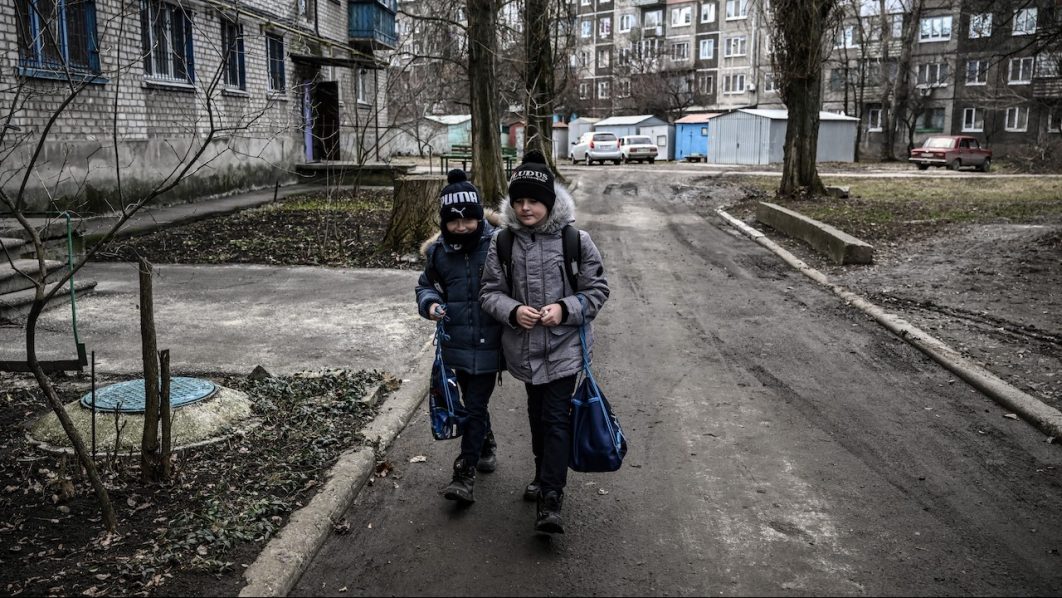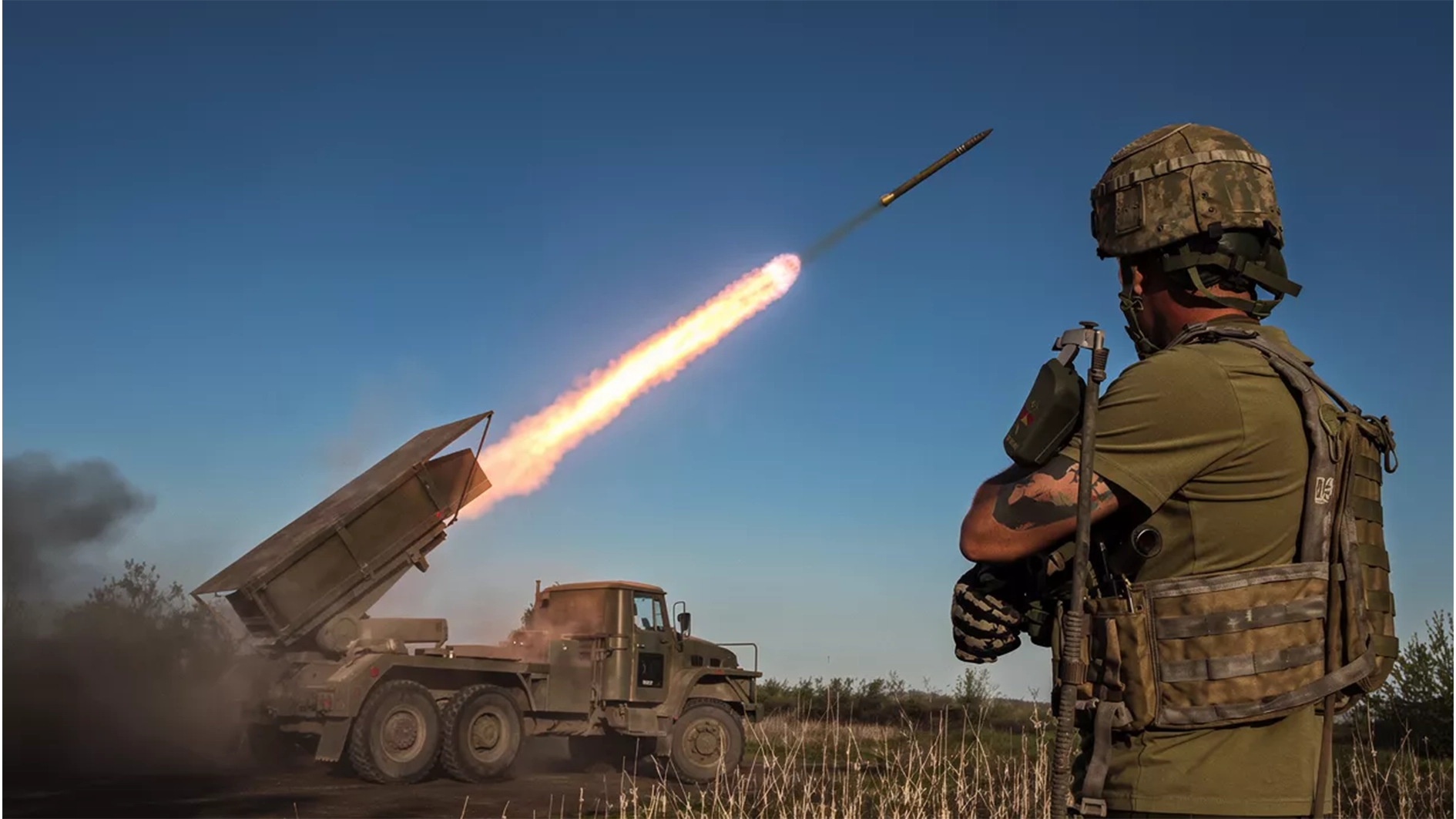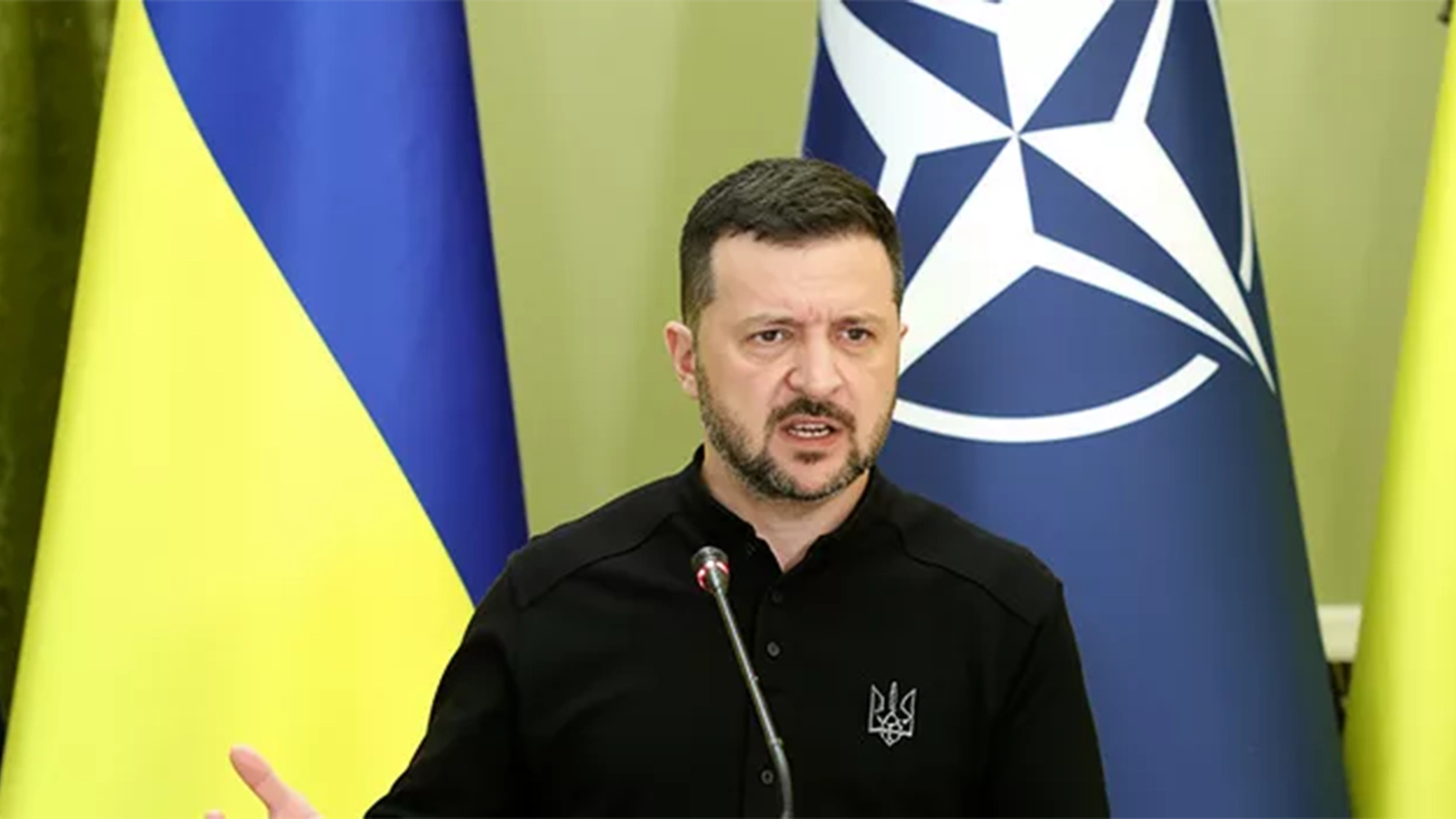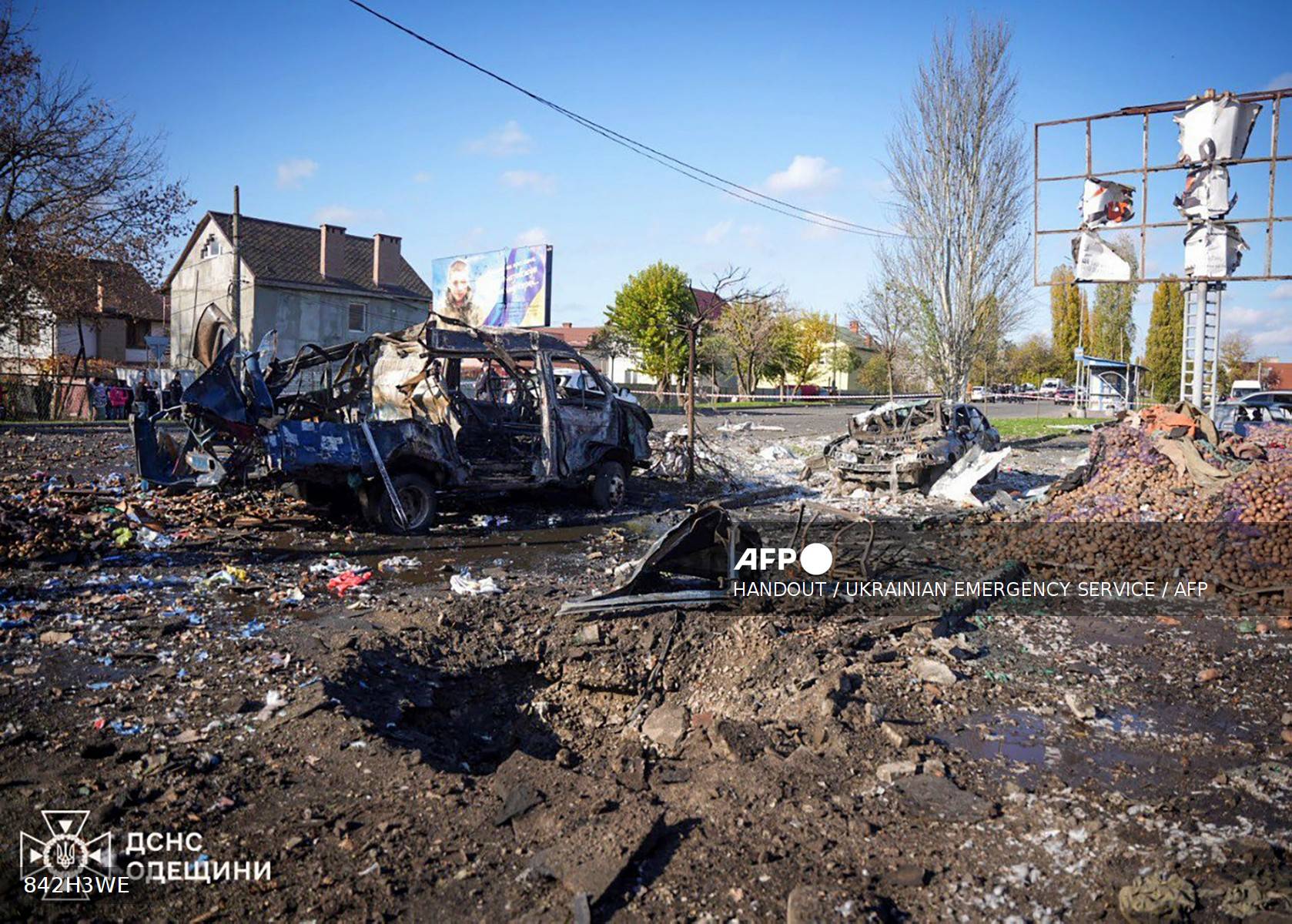
The Kremlin said Monday that Russian President Vladimir Putin was planning to recognise two rebel regions of Ukraine as independent, a move that could set off a potentially catastrophic conflict with Kyiv’s Western-backed government.
In a statement after Putin spoke to the French and German leaders, the Kremlin said Putin had informed them of requests from authorities in the breakaway regions and from Russian lawmakers for Moscow to grant recognition.
“In the near future, the president plans to sign the order,” the statement said, adding that France’s Emmanuel Macron and Germany’s Olaf Scholz “expressed disappointment” over the decision in the phone calls.
Putin had hours earlier presided over a long and carefully stage-managed meeting of his powerful Security Council, listening to senior officials say it was time for Russia to recognise the Donetsk People’s Republic and the Lugansk People’s Republic as independent.
“I have heard your opinions. The decision will be taken today,” he said after the meeting, which aired on state television for more than 90 minutes.
State media have announced a televised statement by Putin later on Monday.
The recognition will effectively put an end to an already shaky peace plan in the separatist conflict, which has rumbled on since 2014, after Moscow annexed Crimea from Ukraine, and has left more than 14,000 dead.
Russia could now move in troops to protect hundreds of thousands of residents in the regions who have been granted Russian passports, justifying an intervention as a defence of its citizens.
Ukraine would then either have to accept the loss of a huge chunk of territory, or face an armed conflict with its vastly more powerful neighbour.
Ukrainian leader President Volodymyr Zelensky said he had convened his own National Security and Defence Council after Putin spoke, and also held calls with Macron and Scholz.
The sudden and decisive move by Moscow overshadowed last-ditch diplomatic attempts to ease weeks of tensions over fears Russia has been planning an all-out invasion of its pro-Western neighbour.
European leaders have been urging Putin to hold a summit with his US counterpart Joe Biden, and Russian Foreign Minister Sergei Lavrov told Putin in the security council meeting that he would meet his US counterpart on Thursday in Geneva.
‘Very big threat’ to Russia
But Putin made clear there was no room for further talks on the separatists, telling the security council there were “no prospects” for the 2015 Minsk peace accords aimed at resolving the Ukraine conflict.
He made clear the stakes were bigger than ex-Soviet Ukraine, whose efforts to join NATO and the European Union have deeply angered Moscow.
“The use of Ukraine as an instrument of confrontation with our country poses a serious, very big threat to us,” Putin said.
The dramatic meeting — with Putin sitting alone at a desk as his government, military and security chiefs took turns addressing him from a podium — came after weeks of tensions between Moscow and the West over Ukraine.
Western leaders are warning that Russia is planning to invade its pro-Western neighbour after massing more than 150,000 troops on its borders, a claim Moscow has repeatedly denied.
Ukraine on Monday requested an urgent meeting of the UN Security Council to address the threat, citing security assurances it received in return for giving up its nuclear arsenal in 1994.
Announcing the request on Twitter, Foreign Minister Dmytro Kuleba cited article six of the Budapest memorandum, the landmark 1994 deal also signed by Russia, the United States and Britain.
The tensions have spiked in recent days after an outbreak of heavy shellfire on Ukraine’s eastern frontline with the separatists and a series of reported incidents on the border with Russia.
In one of the most potentially dangerous, Moscow claimed — to furious Kyiv denials — that its forces had intercepted and killed five Ukrainian saboteurs who infiltrated Russian territory, and accused Ukraine of shelling a border post.
‘Crush them, harm them’
Kyiv, concerned that Russia is building a narrative to justify an invasion, immediately denied all the allegations, which are being widely broadcast on Russian state media, and Kuleba took to Twitter.
“No, Ukraine did NOT: attack Donetsk or Lugansk, send saboteurs or APCs (armoured personnel carriers) over the Russian border, shell Russian territory, shell Russian border crossing, conduct acts of sabotage,” he said.
“Ukraine also does NOT plan any such actions. Russia, stop your fake-producing factory now,” he wrote.
Also on Monday, local officials said shelling on the government-held village of Novoluganske, 35 kilometres (25 miles) north of the eastern rebel stronghold Donetsk, had killed a civilian there.
US National Security Advisor Jake Sullivan told NBC news that a Russian invasion of its neighbour would be an “extremely violent” operation followed by a brutal occupation.
“It will be a war waged by Russia on the Ukrainian people to repress them, to crush them, to harm them,” the White House official said.
Ukrainian Defence Minister Oleksiy Reznikov said there was no sign of Russian forces withdrawing from the border and Moscow-backed rebels continued to shell Ukrainian positions.
In recent weeks, according to US intelligence, Moscow has massed an invasion force of troops, tanks, missile batteries and warships around Ukraine’s borders in Belarus, Russia, Crimea and the Black Sea.
Biden has said that US intelligence believes that Putin has made a decision to invade Ukraine and that commanders are readying units to attack within days.
Western powers have threatened a crippling sanctions package if Russia invades and shortly before Putin’s announcement, EU foreign policy chief Josep Borrell said sanctions would also be “on the table” if Russia recognised the separatists.






